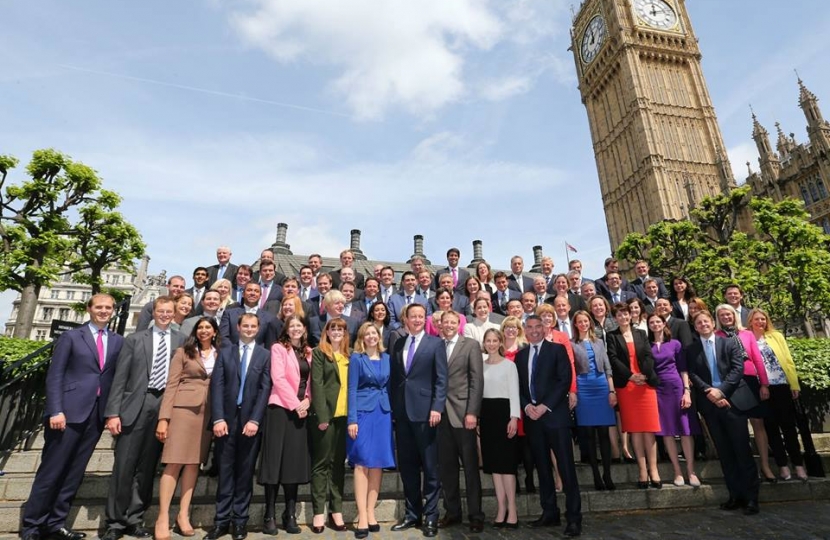
Marcus Fysh made his maiden speech in the House of Commons today, focussing his attention on the need to rebuild faith in politics. Quoting the poem East Coker by TS Eliot, whose ashes are housed in the church of the same name in Mr Fysh's constituency, the new MP said: "Humility is endless."
"Madam Deputy Speaker, many congratulations on your election, and I am glad to have caught your eye on this occasion, so as to make my maiden speech.
I am very pleased to rise today as the first Conservative since 1951 to be newly elected to serve the people of the Yeovil constituency. Therefore, this is the first of Her Majesty’s Gracious Speeches since then to be welcomed by an incoming Yeovil Conservative, a task made easier by the fact that the people of Yeovil, in making their choice, contributed to it outlining a Conservative programme.
People in my area made a decisive choice to support a future of jobs and opportunities, to continue rebuilding our national finances, and to stop burdening our young people and future generations with our mistakes and debts. Whether it is investment in defence, health, education or infrastructure to power our local growth, people understand that it cannot be done without the foundation of a strong economy and sound public finances.
My constituency sits in the middle of the narrowest part of the entrance to the south-west peninsula, on the main ancient route between London and the West Country, and at a crossing of the route between Bristol and the ancient port of Weymouth. Surrounded by rich agricultural land, a series of towns and villages along these routes was fashioned from the local hamstone, giving golden warmth to travellers and inhabitants alike. The area became the natural home of successful farmers, seafarers and venturers, and it delivered a ready supply of the highest grades of flax, rope and sailcloth that powered their exploits.
In modern times, the people of Yeovil remain adventurous and resourceful. Hi-tech, modern defence industries and facilities sit beside innovative service and engineering firms, modern farms and superb tourist experiences. Hon. Members will have heard of the cutting-edge helicopters made by Westland, a great Yeovil firm that grew through Spitfire manufacture during the Second World War. This year, it celebrates its 100th year, supported by a legion of smaller local suppliers.
In all parts of my constituency, in Yeovil, Crewkerne, Chard, Ilminster, South Petherton, Ilchester and all the farms and villages in between, there is a very positive spirit in all sizes of businesses and sectors. We know that with the right policies and support, we can make our area better, deliver for people in it and raise their incomes. I fully support the Government’s programme of infrastructure improvement, including the major road, rail, broadband and mobile signal projects that we are promoting in the south-west, not least the dualling of the A303 and A358, which run through my constituency, so that we can regain our place as a key regional powerhouse of economic growth in Britain, improve our productivity and enhance local people’s incomes.
My immediate predecessor, David Laws, worked hard, was polite and clear, and had a charming way, especially with older people in my constituency. He also took an interest in the young and recognised the dedication of our teachers to young people’s progress, which is something I also hope to do. His dry economic views smoothed the way for the formation of the coalition Government in 2010, in which he served first as Chief Secretary to the Treasury and latterly as Education Minister. His voting support for that Government and their policies was notable, and I thank him for his service.
Finally, we must reflect on why some have lost faith in our politics and try to put it right by our actions. We need in this place to be more thoughtful and humble and never to lose touch with the roots of trust of the people we represent and never stop listening to them and their hopes. To speak in this Chamber, the repository of so much human hope, past, future and present, is both thrilling and humbling. It is the Chamber’s particular part in preserving that democratic humility that we should defend above all. Our great poet, T. S. Eliot, commemorated in Westminster Abbey but resting for eternity in my constituency in a simple church in the parish of East Coker, in a poem of the same name, put it very satisfactorily: “humility is endless”."
